This autumn, the G.A.S. Foundation hosted residencies in both Lagos and Ikise for practitioners Shabu Mwangi, Liz Kobusinge, Theophilus Imani, Kosisochukwu Nnebe, Ofem Ubi, Avery Youngblood, and Osei Bonsu. Their practices—spanning painting, sculpture, printmaking, and curatorial research—engaged with themes of postcolonial histories, cultural memory, and social change amongst others. These residencies culminated in a series of public events that showcased their diverse creative enquiries, with each artist offering a unique perspective through their work.
Shabu Mwangi, Kenyan multidisciplinary artist and recipient of the 2023 Access ART X Diaspora Prize, undertook a residency at G.A.S. Foundation from September to November 2024. His time in Lagos was dedicated to preparing for his presentation at the fair, where he explored themes of fortune, power, and their societal implications. Drawing inspiration from Lagos’ communities and histories, Mwangi created new works while engaging with local peers. He collaborated with artist Dennis Osadebe at the Protest Art Studio and hosted an artist talk and workshop titled My Journey in Art on November 7th. This interactive session combined personal insights, an introduction to his social practice as part of Wajukuu Artists Collective in Nairobi, and a drawing workshop exploring art as a tool for social change.
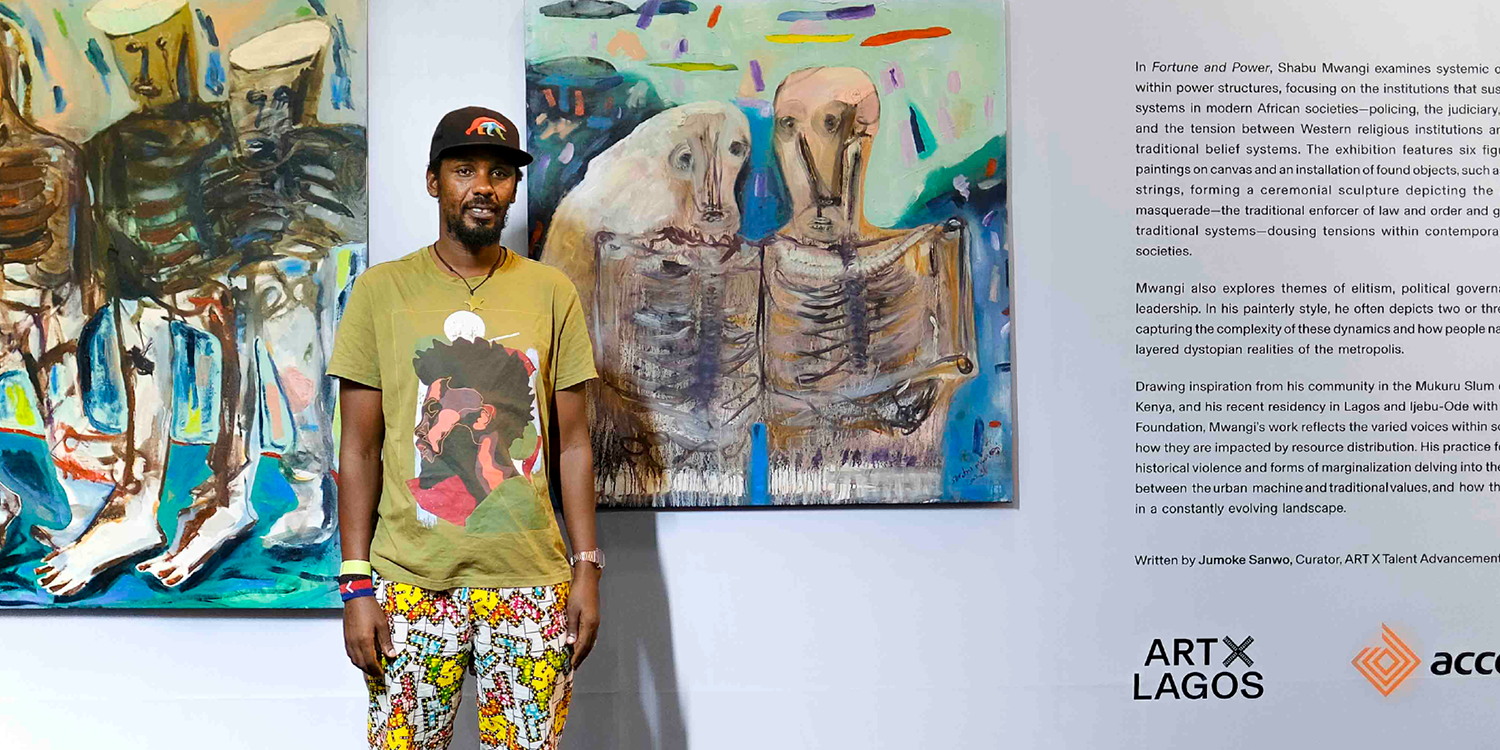 Shabu Mwangi, Access ART X Prize: What May Come 2024 Exhibition. Image courtesy of ART X Lagos.
Shabu Mwangi, Access ART X Prize: What May Come 2024 Exhibition. Image courtesy of ART X Lagos.
Liz Kobusinge, a multidisciplinary artist and printmaker, and Theophilus Imani, a visual researcher, spent October advancing their exploration of pan-African cultural festivals as part of G.A.S. Foundation's Annotations project. Supported by the Outset Contemporary Art Fund, the six-month project investigates these festivals as both historical events and postcolonial pan-African repositories. Liz and Theo’s residency comes as a sequel to the initial Annotations Research Associates programme, where a cohort of six emerging art professionals researched Pan-African Festivals through the lens of the G.A.S. Library and Picton Archive. During their residency, Liz and Theo conducted field trips to sites that bear relevance to FESTAC ’77 such as the National Theatre, New Culture Studio in Ibadan, and the Lagos lagoon, retracing the pathways of FESTAC’s iconic Boat Regattas. They were also in close contact with researchers of African and Diasporic studies from the University of Ibadan’s Institute of African Studies. These visits complemented their archival research at the G.A.S. Library and Picton Archive.
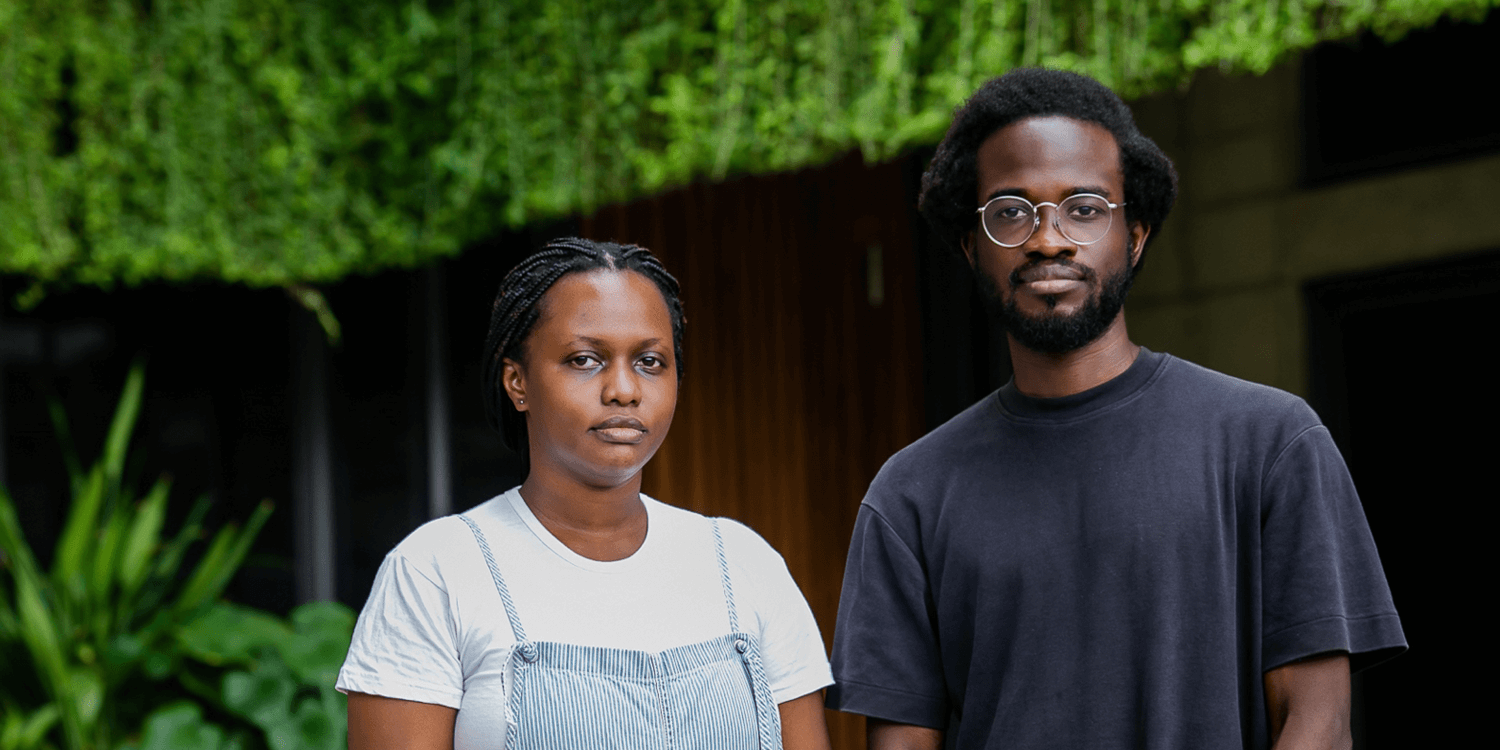 Annotations residents Liz Kobusinge and Theophilus Imani, on-site at G.A.S. Lagos.
Annotations residents Liz Kobusinge and Theophilus Imani, on-site at G.A.S. Lagos.
In October, they participated in Lagos Art Tour Networking Day, where they discussed their practices and research with industry stakeholders from across the city of Lagos. They also hosted a walkthrough of the Emokpae Archive with former Annotations Research Associate, Osayame Emokpae-Ozoro. Their residency culminated on November 6th with Archival Choreographies, part of École du Festival’s second study session. They shared archival materials, invited participants to engage with FESTAC artefacts, and presented their shadow box installation. A live performance by pianist Philip A. Balogun illuminated the cultural narratives of pan-African festivals.
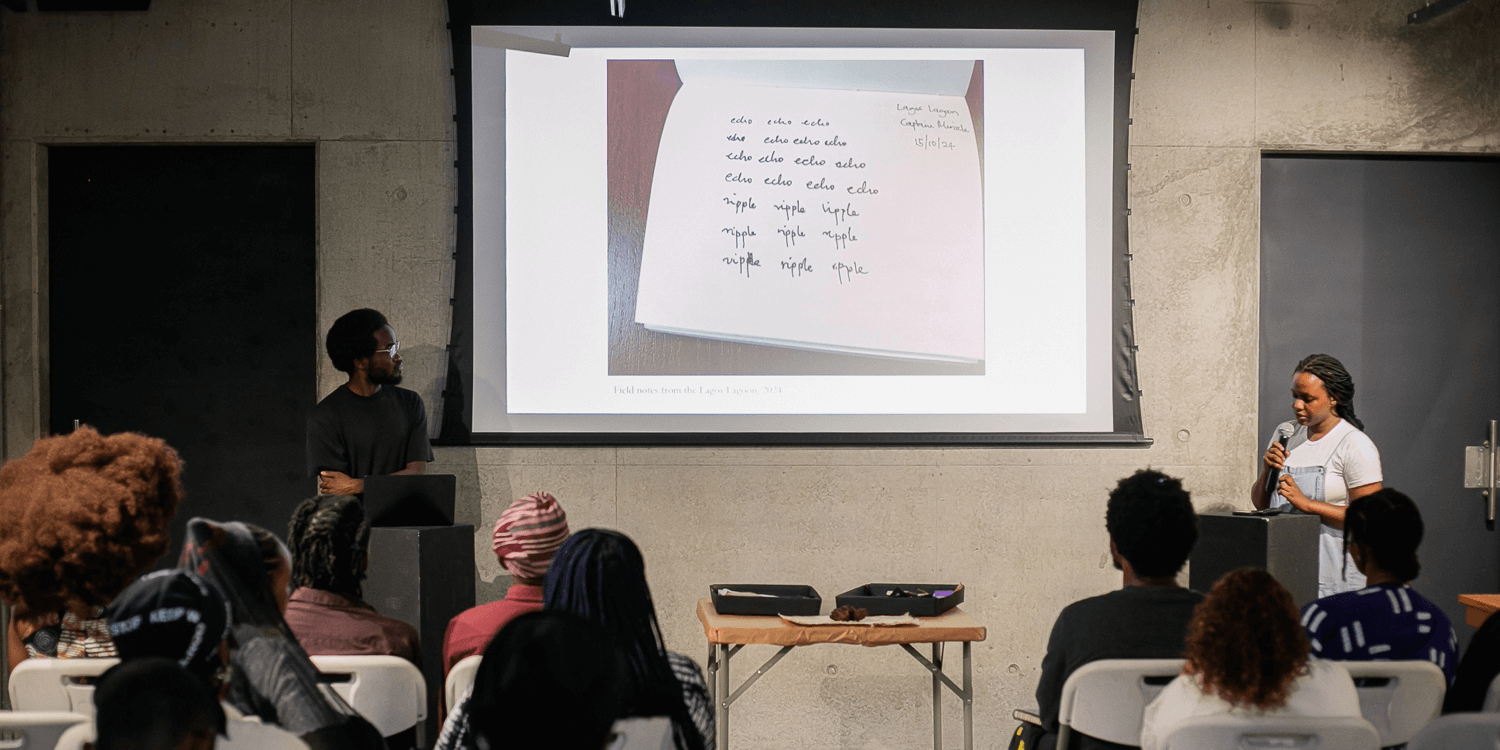 Liz Kobusinge and Theophilus Imani present their Annotations Shadow Box at École du Festival Study Day, Session Two on 6th November 2024.
Liz Kobusinge and Theophilus Imani present their Annotations Shadow Box at École du Festival Study Day, Session Two on 6th November 2024.
Nigerian-Canadian conceptual artist and writer Kosisochukwu Nnebe completed a seven-week residency at the G.A.S. Farm House in Ijebu, awarded through the 2023 edition of the G.A.S. Fellowship Award. Kosisochukwu’s research centred on Afro-Caribbean crops as a counter-archive of colonial histories, examining their cultural significance in Nigerian cuisine, Yoruba Adire textiles, and Igbo Uli art. Through resist dye techniques, photography, and eco-printing, she explored these species' migration across the Atlantic, their role in resistance during colonialism, and their adaptations in new contexts. She also explored chlorophyll printing on banana leaves, presenting her photographic works on these surfaces during the 2024 Lagos Art Tour. She will continue to look into preservation technologies for these prints after her residency.
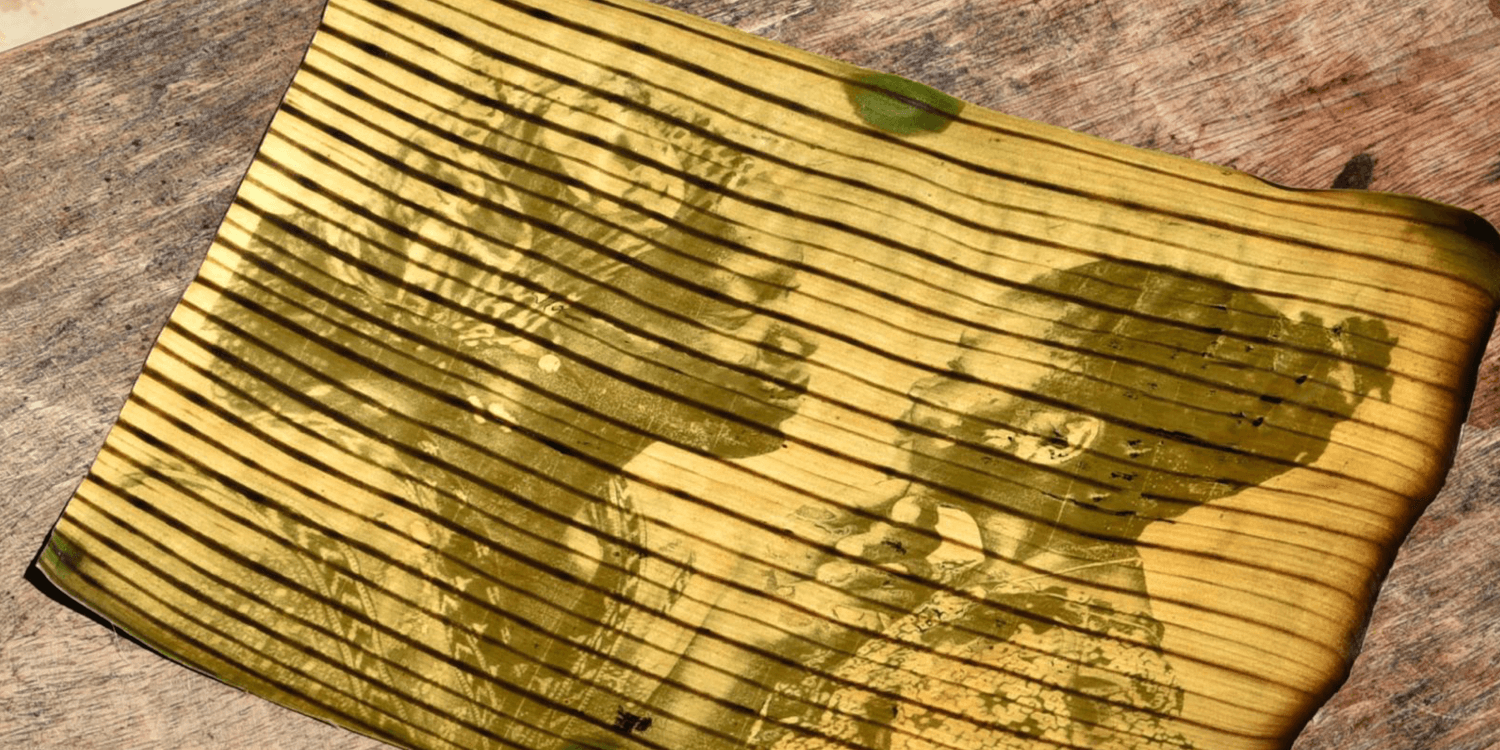 Chlorophyll Print on Banana Leaf by Kosisochukwu Nnebe. Image courtesy of the artist.
Chlorophyll Print on Banana Leaf by Kosisochukwu Nnebe. Image courtesy of the artist.
Her residency included site visits to the Osun-Osogbo Sacred Groves and Badagry Slave Port, as well as engagements with local artists and artisans in the Ikise area, and farmers on and around the Ecology Green Farm. Her residency culminated in In Dialogue, a virtual conversation with renowned Ghanaian artist Ibrahim Mahama, discussing colonial histories and reimagining Black aliveness.
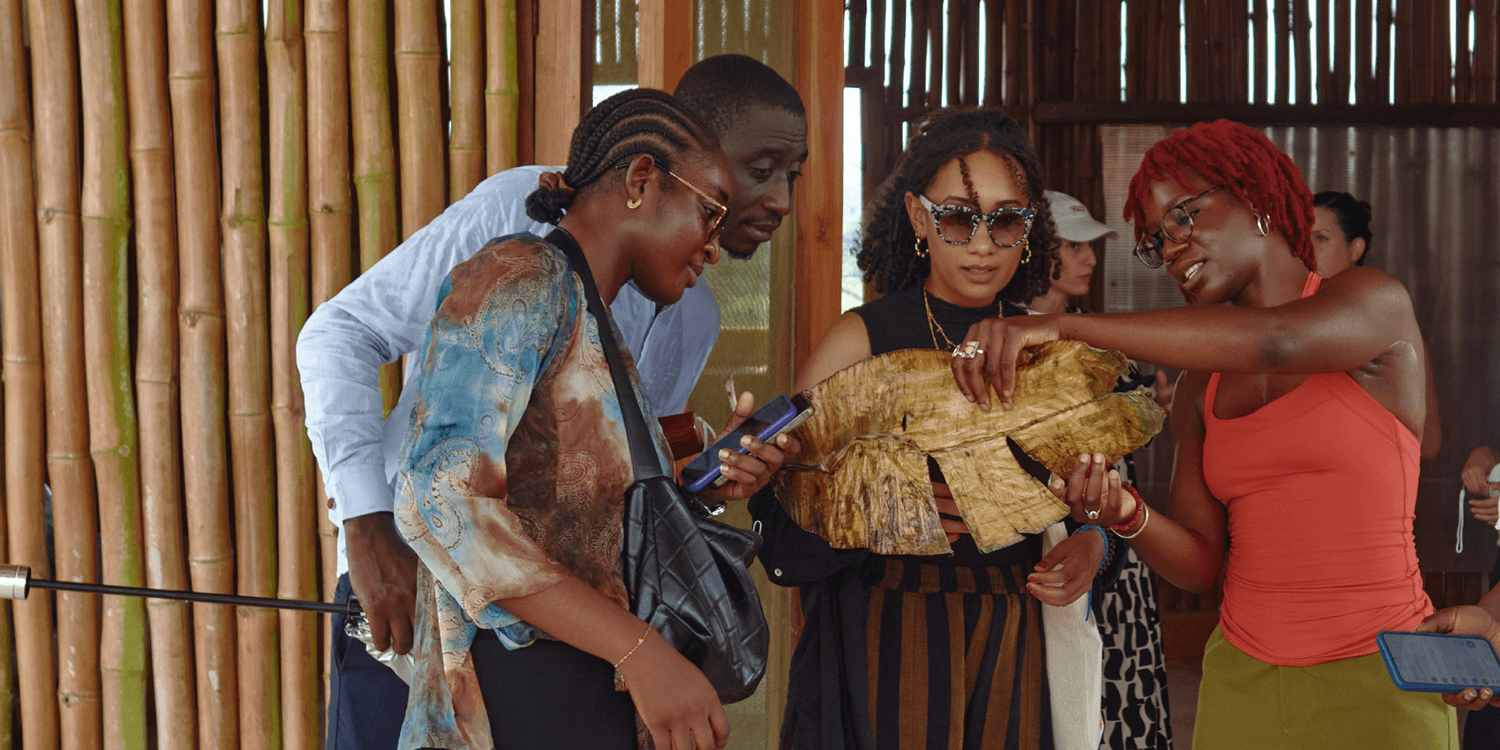 Kosisochukwu Nnebe shows her photographic prints on banana leaves to Ecology Green Farm visitors during the 2024 Lagos Art Tour.
Kosisochukwu Nnebe shows her photographic prints on banana leaves to Ecology Green Farm visitors during the 2024 Lagos Art Tour.
Ofem Ubi, a multidisciplinary artist and poet and one of G.A.S. Foundation's inaugural fellowship cohort, returned to G.A.S. for a Farm House residency this Autumn. Building on his practice of exploring memory, participation, and storytelling through photography, film, and literature, Ofem used the residency to develop a new body of work focused on the role of humour within Nigeria’s current economic climate. His research explores how humour, prevalent in contemporary popular culture, serves as both a coping mechanism and a form of social critique amidst the nation's ongoing economic struggles.
During the Lagos Art Tour, Ubi presented a reading of his work-in-progress at the G.A.S. Farm House. To conclude his residency, Ubi, alongside Joladé Olusanya, will lead Functions of Humour, a writing workshop at G.A.S. Lagos. The workshop aims to explore the different manifestations of humour in contemporary Nigerian culture, offering participants a space to engage with humour as a tool for resistance, identity, and social commentary.
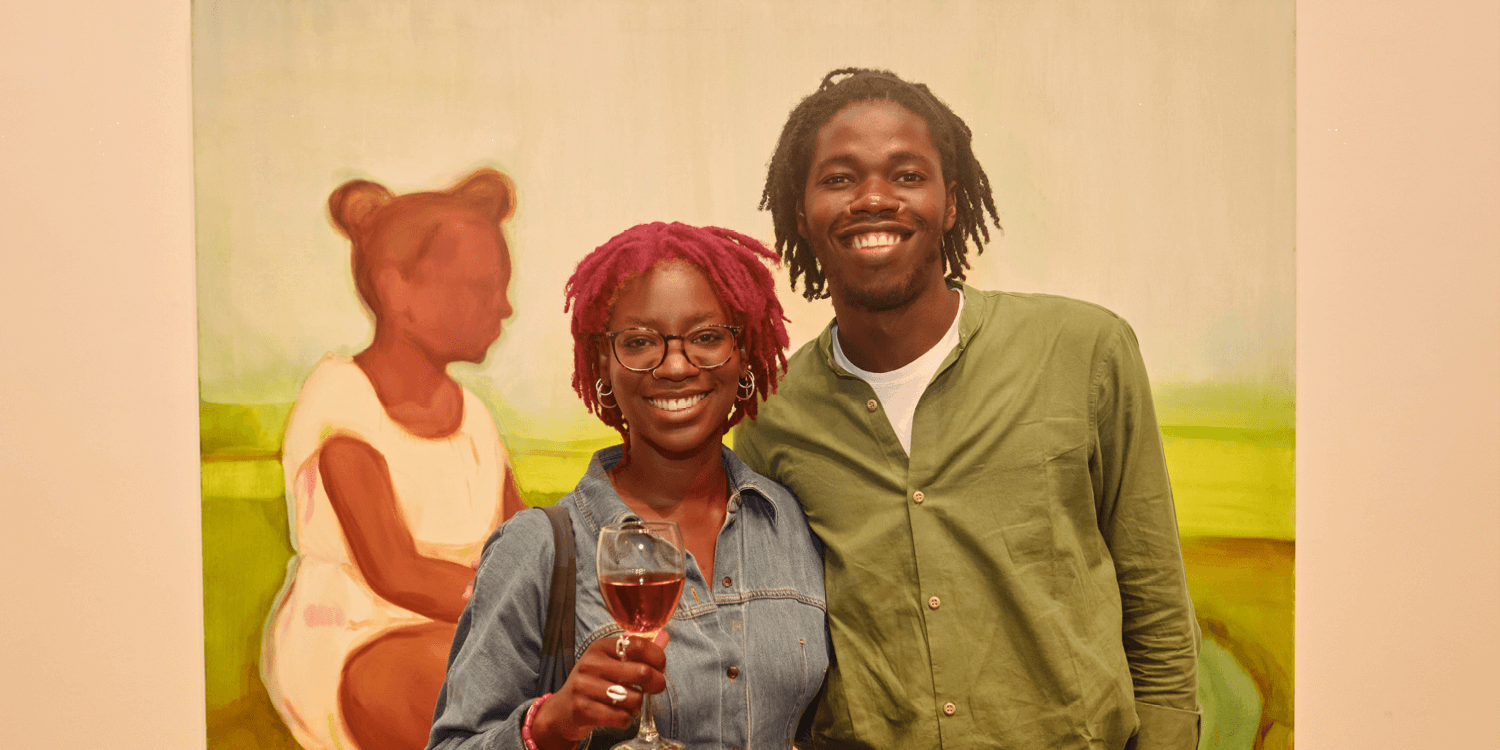 Ofem Ubi and Kosisochukwu Nnebe at the Tiwani Contemporary Reception during Lagos Art Tour 2024.
Ofem Ubi and Kosisochukwu Nnebe at the Tiwani Contemporary Reception during Lagos Art Tour 2024.
Avery Youngblood, a multidisciplinary artist and designer, is completing a six-week residency at G.A.S. Lagos as the first resident supported by the Yale School of Art. Her research focuses on obsolete technologies like camcorders and CRT TVs, exploring their roles in postcolonial narratives and social class dynamics. Avery's research took her to local printing institutions and cultural sites across Lagos, Ibadan, and Ijebu; including the Printing Departments at Yaba College of Technology and New Culture Studio. She also engaged with Nadine Seigert of Iwalewa Books and discussed the challenges and opportunities in small-scale publishing in Nigeria. Her residency will culminate in Primitive Hypertext, an interactive storytelling and printing workshop that highlights her exploration of memory, archives, and obsolete technologies.
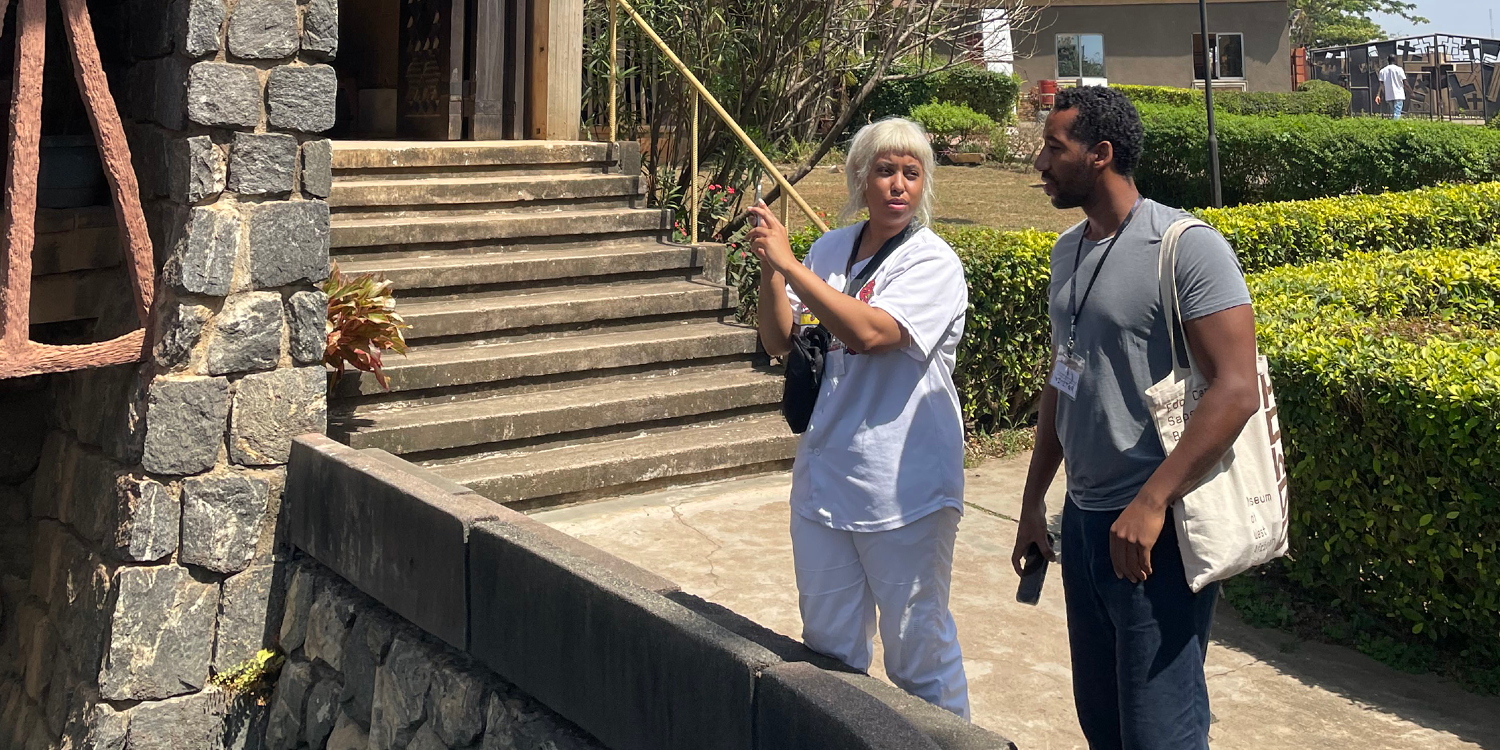 Avery Youngblood with Osei Bonsu at the Dominican Chapel in Ibadan.
Avery Youngblood with Osei Bonsu at the Dominican Chapel in Ibadan.
In November G.A.S. Lagos hosted Osei Bonsu, a British-Ghanaian curator, writer, art historian, and Curator of International Art at Tate Modern. He focused his time on advancing research for Nigerian Modernism, an exhibition opening at Tate Modern, London in October 2025. His residency primarily entailed uncovering the artistic and political intersections that defined Nigeria's transition to independence. Beyond research, Osei built meaningful connections with local institutions, estates, and artists, including Bruce Onobrakpeya, Chief Nike Okundaye-Davies, and the estates of Uche Okeke and Yusuf Grillo. His visits to heritage sites and collections further enriched his understanding of Nigeria's cultural legacies.
On December 4th, 2024, G.A.S. Lagos hosted Building Artists Estates and Legacies, a panel led by Osei Bonsu and representatives from the estates of Nigeria’s modernist pioneers, including Salma Uche-Okeke, Rufus Nwoko, Morayo (Grillo) Anthonio, and Ejiro Mudiaga Onobrakpeya. Together, they discussed how Nigeria's modernist pioneers shaped cultural institutions, fostering innovation and preservation while inspiring a new generation to sustain their legacy, through the lens of The Zaria Art Society (1958–1961), a collective that ushered in a new Nigerian artistic expression, rejecting the curriculum and pedagogy of British colonial education. The Zaria Art Society, founded by visionary artists Uche Okeke, Demas Nwoko, Bruce Onobrakpeya, and Yusuf Grillo, challenged the colonial frameworks of art education, asserting their cultural identity and reimagining the possibilities of artistic practice.
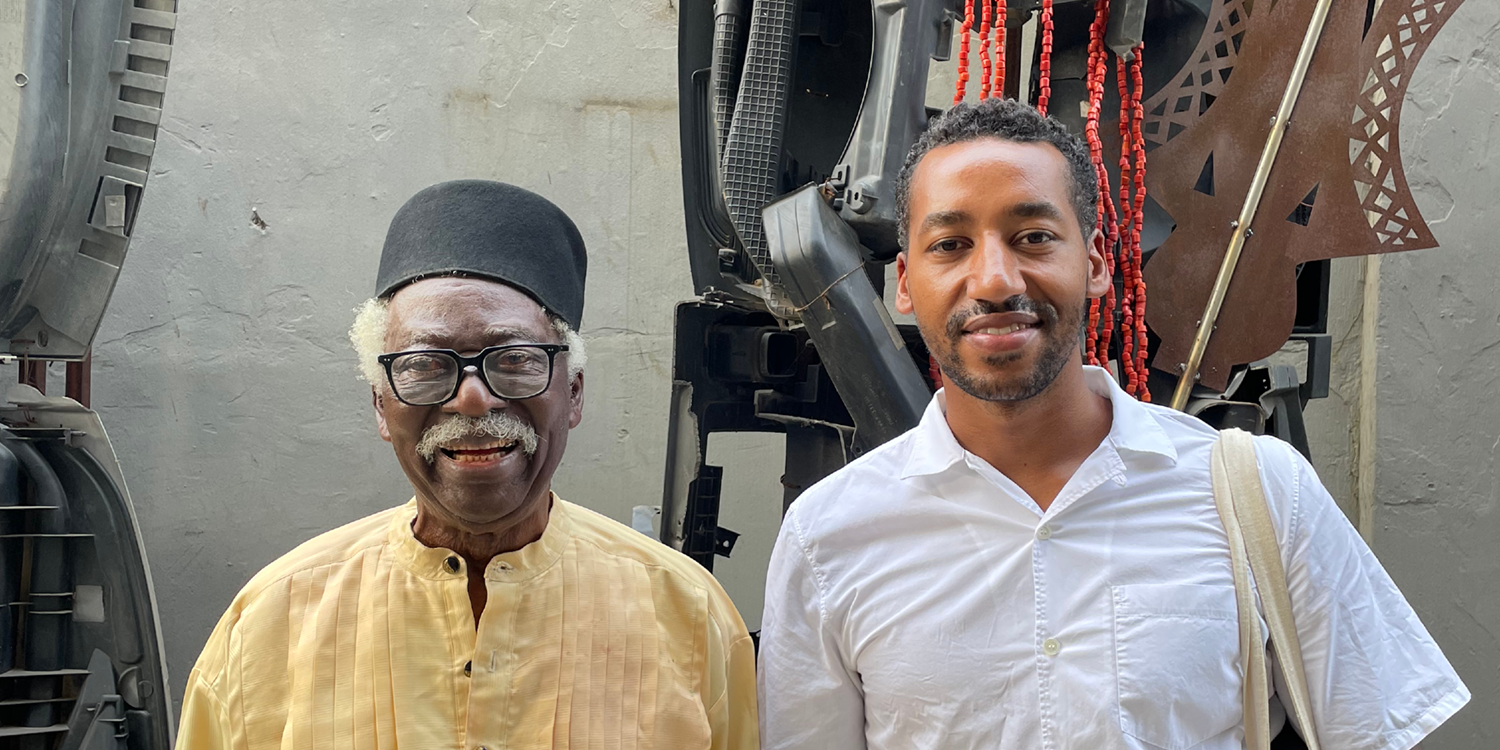 Osei Bonsu with Bruce Onabrakpeya at Bruce's studio.
Osei Bonsu with Bruce Onabrakpeya at Bruce's studio.